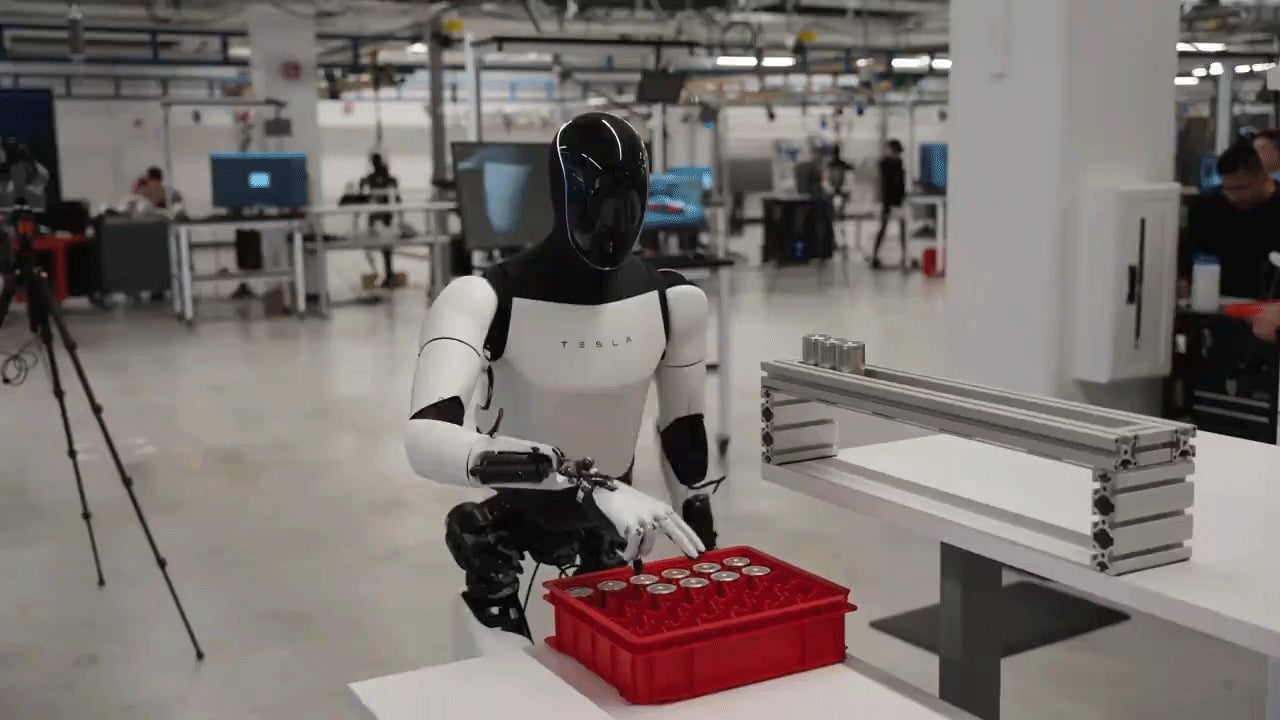A video of Tesla’s new humanoid robot leaves actual humans less than impressed
Elon Musk says Tesla is a robotics and AI company now

Last month, on a very odd investor call, Elon Musk declared that Tesla was no longer a car company. It’s a robotics company now, an AI company, and the cars are just means to that end. So how’s the whole robotics thing going? Well, according to a new video from the Optimus team, very slowly.
Suggested Reading
Tesla released new video to the official Optimus Twitter account — which is, deeply weirdly, consistently written from the point of view of the robot itself — that shows Optimus moving cylinders around and meandering through a suspiciously empty office setting. Neither of these actions are done with any sense of urgency, which begs the question: Is a humanoid robot really the best way to complete these tasks?
Related Content
Sure, in a vacuum, the idea of a humanoid robot makes sense: It can just slot into existing factories as a one-to-one replacement for those pesky human workers. Look at the actual tasks that Optimus is performing, though, and it’s easy to imagine a specific ass machine that does the same thing faster and more efficiently.
In the cylinder-moving exercise — likely a stand-in for moving around battery cells — the end of that little conveyer belt could easily just dump items into their red case. Since the case appears to have its slots at regular intervals, it wouldn’t be difficult to rig a machine below to shift it around in precise timing with the conveyer above — ensuring each new cylinder drops into a fresh, open hole. I’m no engineer, but this sort of repeatable task seems ripe for a machine that does one thing well.
A specialized machine, of course, would have the advantage of true automation — unlike Optimus, which still appears to be controlled by black-clad Tesla workers in VR headsets. It’s quick, but the Tesla video shows these workers controlling attached Optimus bots. Tesla says in the video that they’re merely training the robots, but that just brings us back to an inefficient robot shape that’s being molded to perform a single specific task.
But, of course, that specialized machinery isn’t marketable. Musk said in that same investor call that he doesn’t see a limit to the bipedal robot market — that buyers will spend unending amounts of money to obtain Optimus bots that’ll do any conceivable task. It remains to be seen, however, whether Optimus can handle the one real task Musk has set before it: Finally, actually justifying Tesla’s valuation.